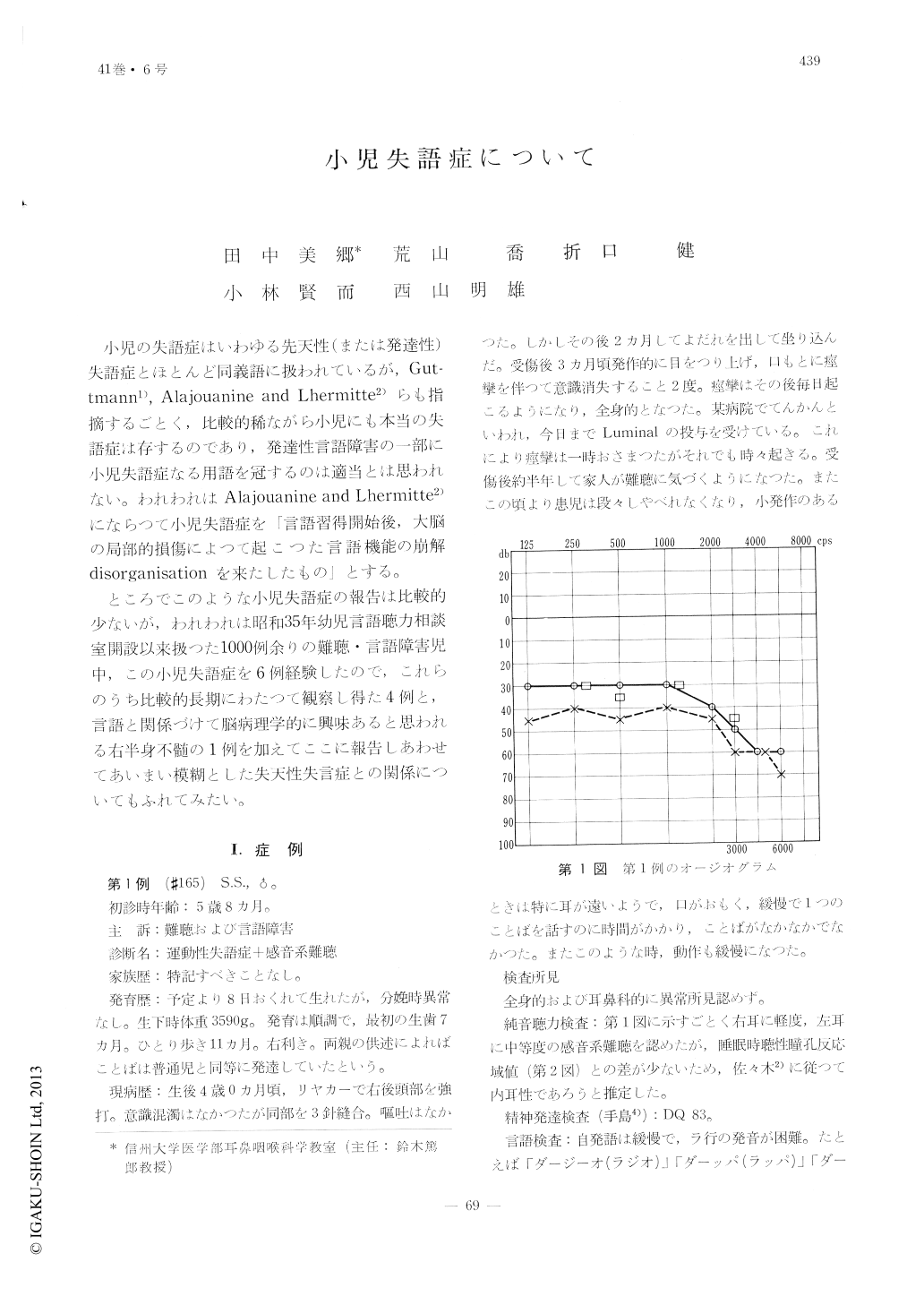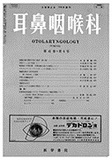Japanese
English
- 有料閲覧
- Abstract 文献概要
- 1ページ目 Look Inside
小児の失語症はいわゆる先天性(または発達性)夫語症とほとんど同義語に扱われているが,Guttmann1),Alajouanine and Lhermitte2)らも指摘するごとく,比較的稀ながら小児にも本当の失語症は存するのであり,発達性言語障害の一部に小児失語症なる用語を冠するのは適当とは思われない。われわれはAlajouanine and Lhermitte2)にならつて小児失語症を「言語習得開始後,大脳の局部的損傷によつて起こつた言語機能の崩解disorganisationを来たしたもの」とする。
ところでこのような小児失語症の報告は比較的少ないが,われわれは昭和35年幼児言語聴力相談室開設以来扱つた1000例余りの難聴・言語障害児中,この小児失語症を6例経験したので、これらのうち比較的長期にわたつて観察し得た4例と,言語と関係づけて脳病理学的に興味あると思われる右半身不髄の1例を加えてここに報告しあわせてあいまい模糊とした失天性失言症との関係についてもふれてみたい。
Four cases of acquired aphasia and 1 case of retarded development of speech associated with right hemiplegia following a head trauma that occurred just before the time of speech acquisition were reported. Three of the four eases of aphasia were motor type, while the other was sensory. Recovery from aphasia in these cases was rapid, excepting for one in whom the motor aphasia failed to show recovery nor any signs of subsequent mental development. In the case of sensory aphasia a jargon aphasia, which is quite rare in the aphasia of childhood, was met with.
With the study of these cases the authors emphasized that the term,"aphasia in children", should be applied to those cases that are acquired and not to those that are congenital in origin. The nature of latter cases are entirely different.

Copyright © 1969, Igaku-Shoin Ltd. All rights reserved.


